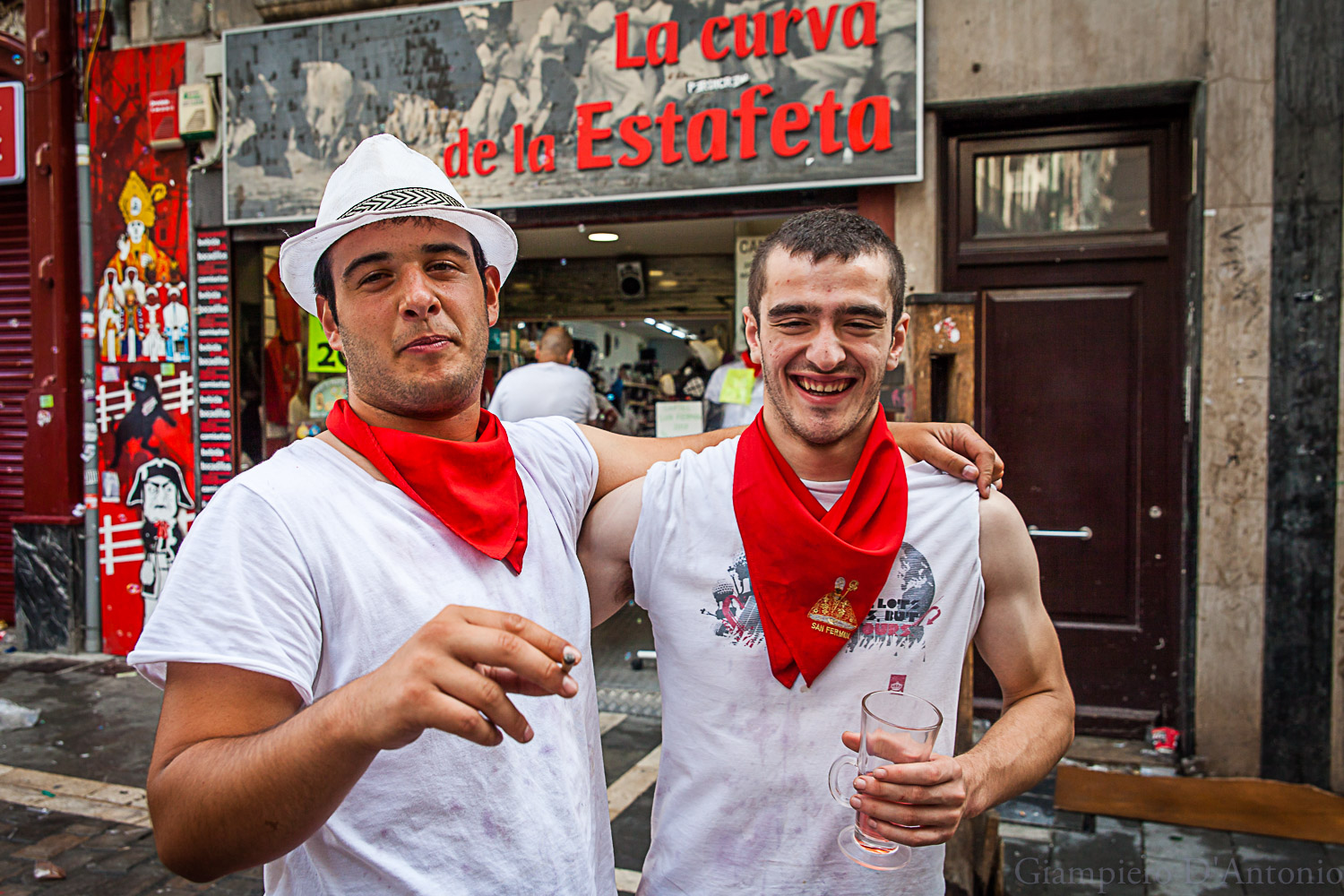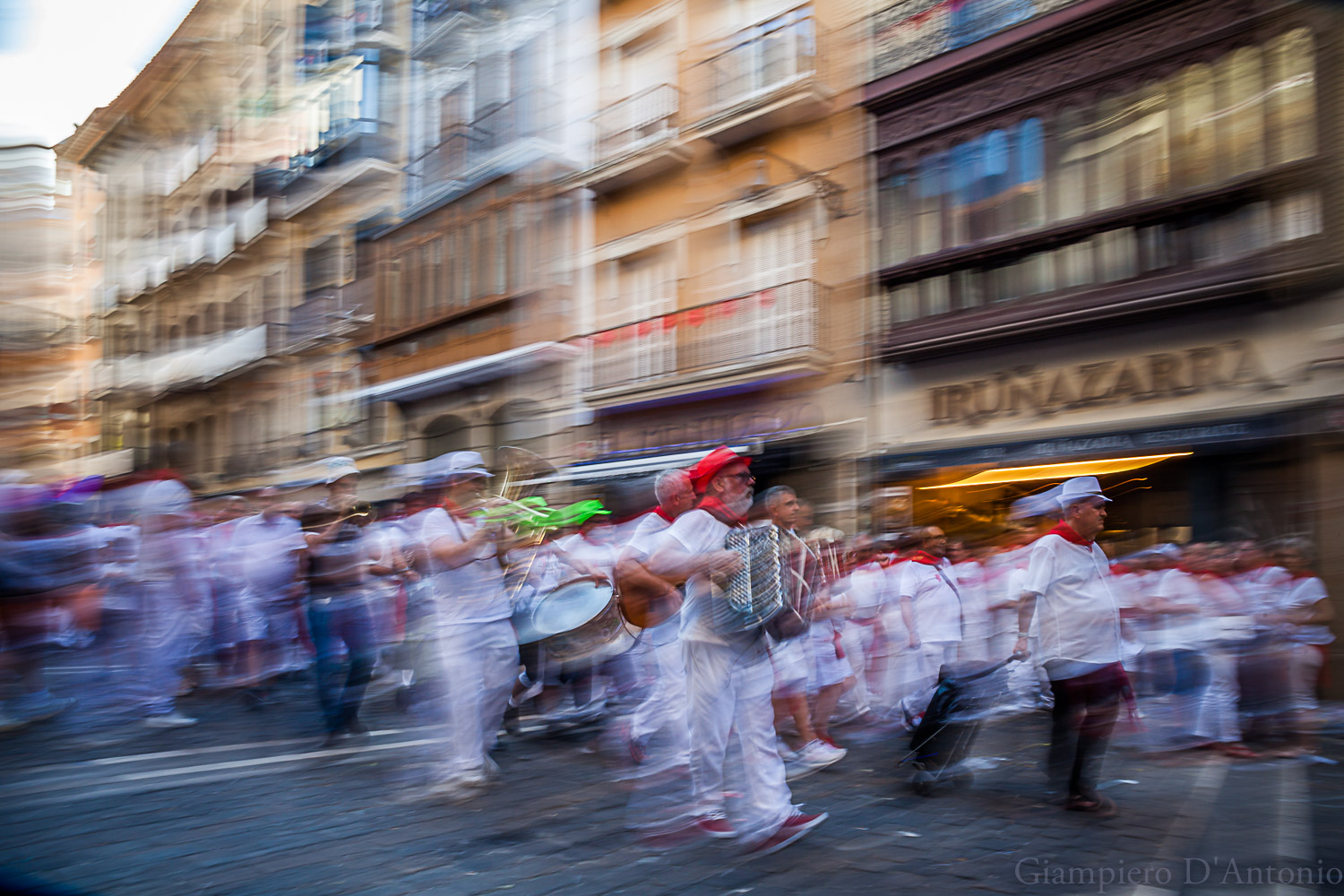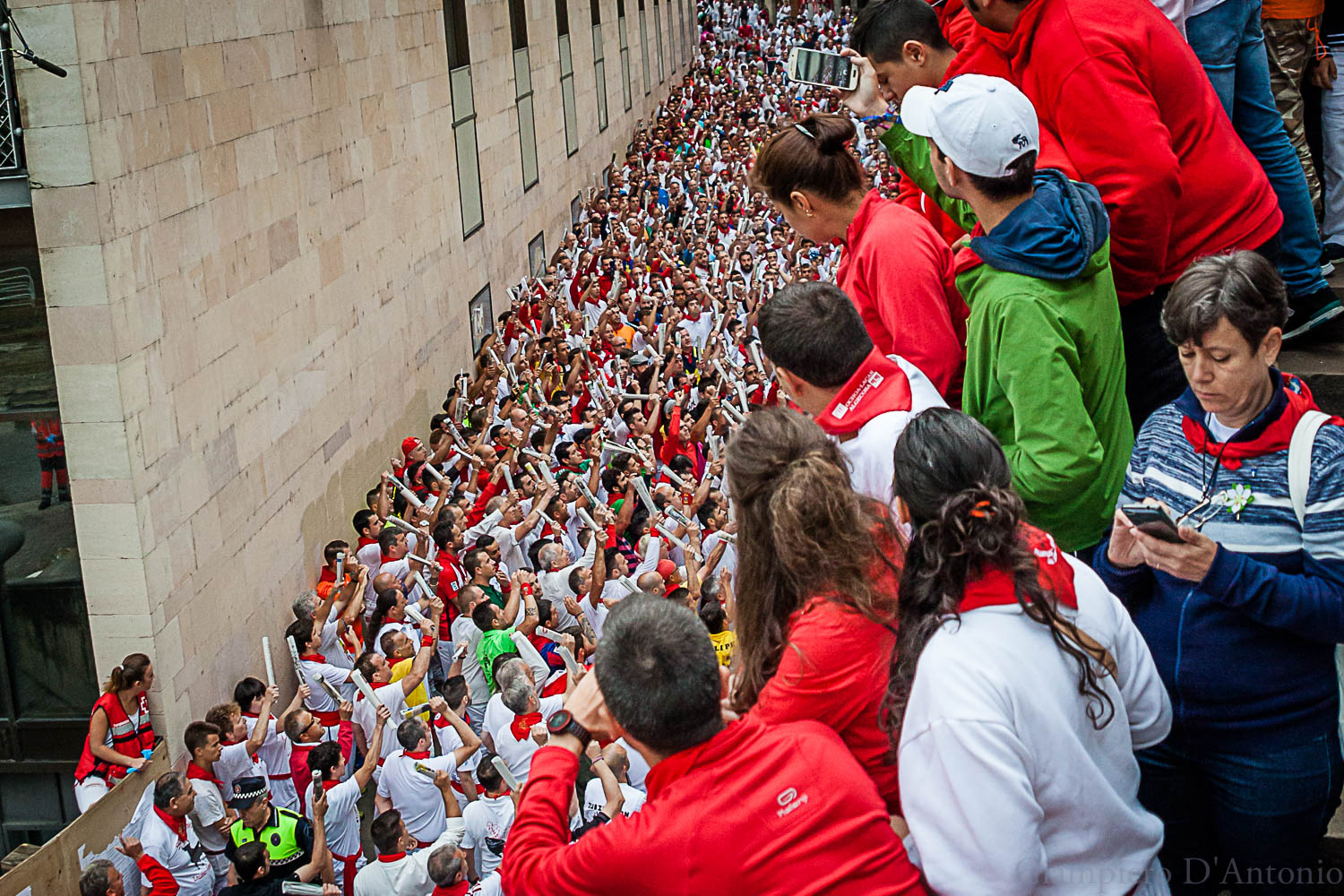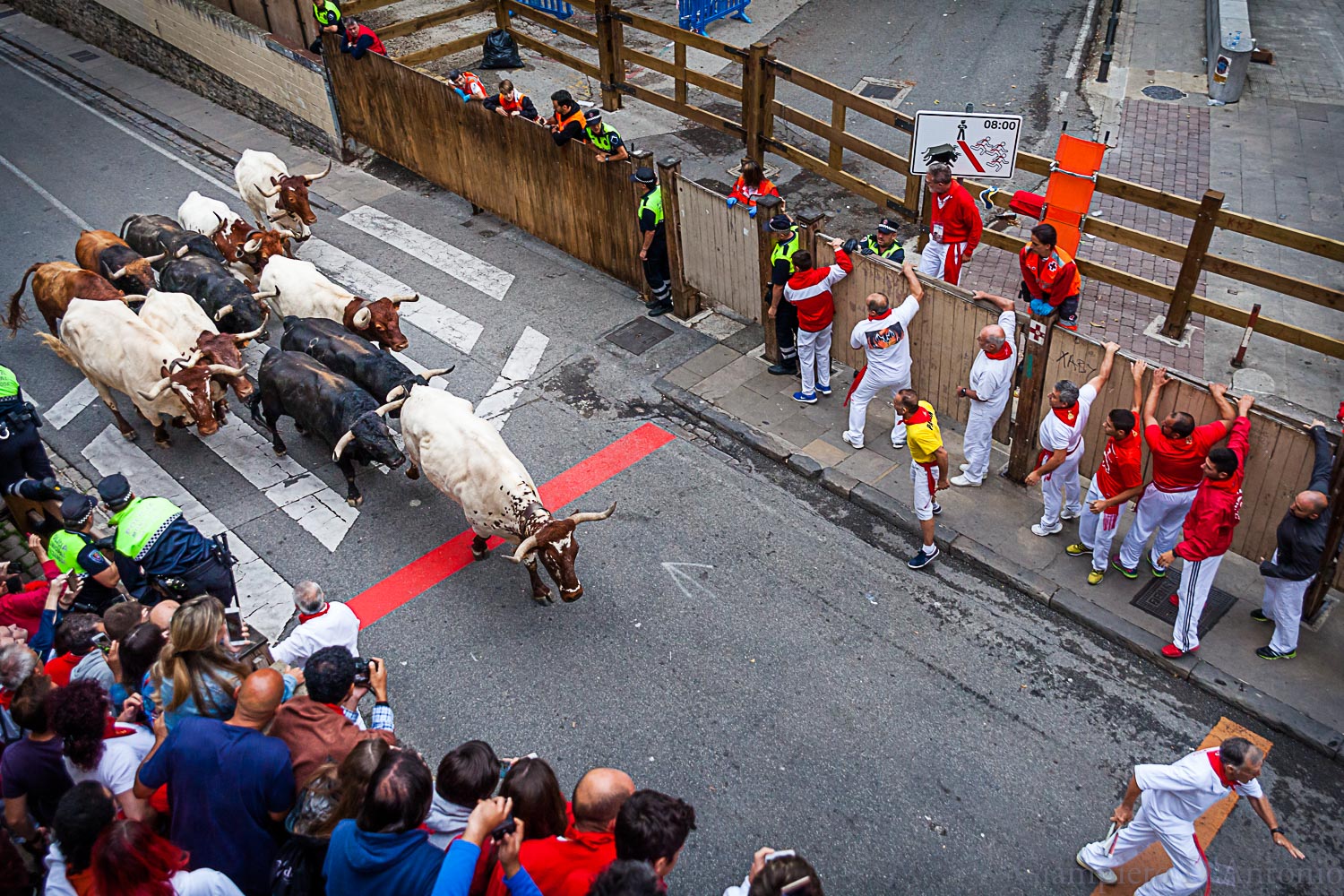The Running of the Bulls, Encierro, of Pamplona is the most famous of Spain, but not the only one. It is the highest profile event of the San Fermin festival, which is held every year from 6–14 July.The first bull running is on 7 July, followed by one on each of the following mornings of the festival, beginning every day at 8 am. The Encierro begins with runners singing a benediction, El Cantico, It is sung three times, each time being sung both in Spanish and Basque. The benediction is a prayer given at a statue of Saint Fermin, patron of the festival and the city, to ask the saint's protection. Though there is no formal dress code, the very common and traditional attire is white pants, white shirt with a red scarf around the waist and a red handkerchief around the neck. Despite The protests of pro-animal rights groups, the show go on. Normally On the eve of the festival, dozens of semi-naked activists try to draw attention at what they see as animal cruelty, only, for entertain the folks. Bullfights are protected under the Spanish Constitution as part of the country’s cultural heritage.
London Pride /
Celebration, diversity, activism, a demonstration — whatever it means to you, Pride in London is back and set to be the biggest yet. Lesbian, trans, genderqueer or otherwise; wherever you identify, Pride in London is about the people, for the people.
Hundreds of thousands of revellers transform London into a rainbow of colour to mark 50 years since the Stonewall uprising changed the face of gay rights with huge parade.
People joined the pride in London, marching, dancing and laughing to campaign for the freedoms that will allow them to live their lives on a genuinely equal footing.
Groups have honoured five decades of activism, protests and victories, with those behind this year's march saying it is an opportunity for people to stand up against bigotry and hatred in all its forms.
Organisers predicted as many as 1.5 million people were set to turn out for the event, with a staggering 600 groups marching through the capital's streets for the annual burst of colour, music and dance.
“Be Who You are and say what You feel because, those Who mind don’t matter and those Who matter don’t mind”
Dhobi Khana /
We arrived in Veli in Fort Kochi, riding a beautiful Royal Enfield, a motorcycle with vintage charm, after a deep visit of Mattancherry. The first sight that greets Us inside the gate market Dhobi Khana is an array of men and women ironing clothes, some still use the traditional charcoal iron, some of these irons were bought decades ago in Sri Lanka.
The environment is pervaded by music and animated by slow and gentle gestures, which give life to this space.
Pass through into the next portion of the three-acre compound of the Khana, and you see, approximately, 40 wash pens lined up in a row dedicated to the washing of garments, acquiring life from the silent and laborious presence of these proud and kind dhobis.
The dhobis belong to the Vannar community of Tamil Nadu. Though there are different accounts about their settlement in Fort Kochi, it is widely believed that the settlement is more than three-centuries-old.
They use the traditional method of soaking the clothes in bleach and detergent water. Soaked clothes are washed by beating on a laundry stone. Starching the clothes is also done by dipping the clothes in starch obtained from boiled rice.
Next to the shed is a drying yard with cross poles and ropes. The washed clothes are left out to dry in the sun for almost five hours. The clothes are tucked in between ropes to secure them, thus avoiding the use of clips.
This is, probably, the only Dhobi Khana (community laundry space) in Kerala, existing in the city successfully for many decades, thanks to a fair number of Kochi citizens who prefer their clothes washed by hand.
They say that the process has remained unchanged for at least the last 40 years, but as with many older ways, most of the people at the dhobi khana say that theirs is a dying profession. Younger generations doesn’t like to pick up this job, They study and aim to have a different and more lucrative job.
Moreover the increasing expand of modern laundry , put the survival of this dhobi khana at risk in in the near future.
















































